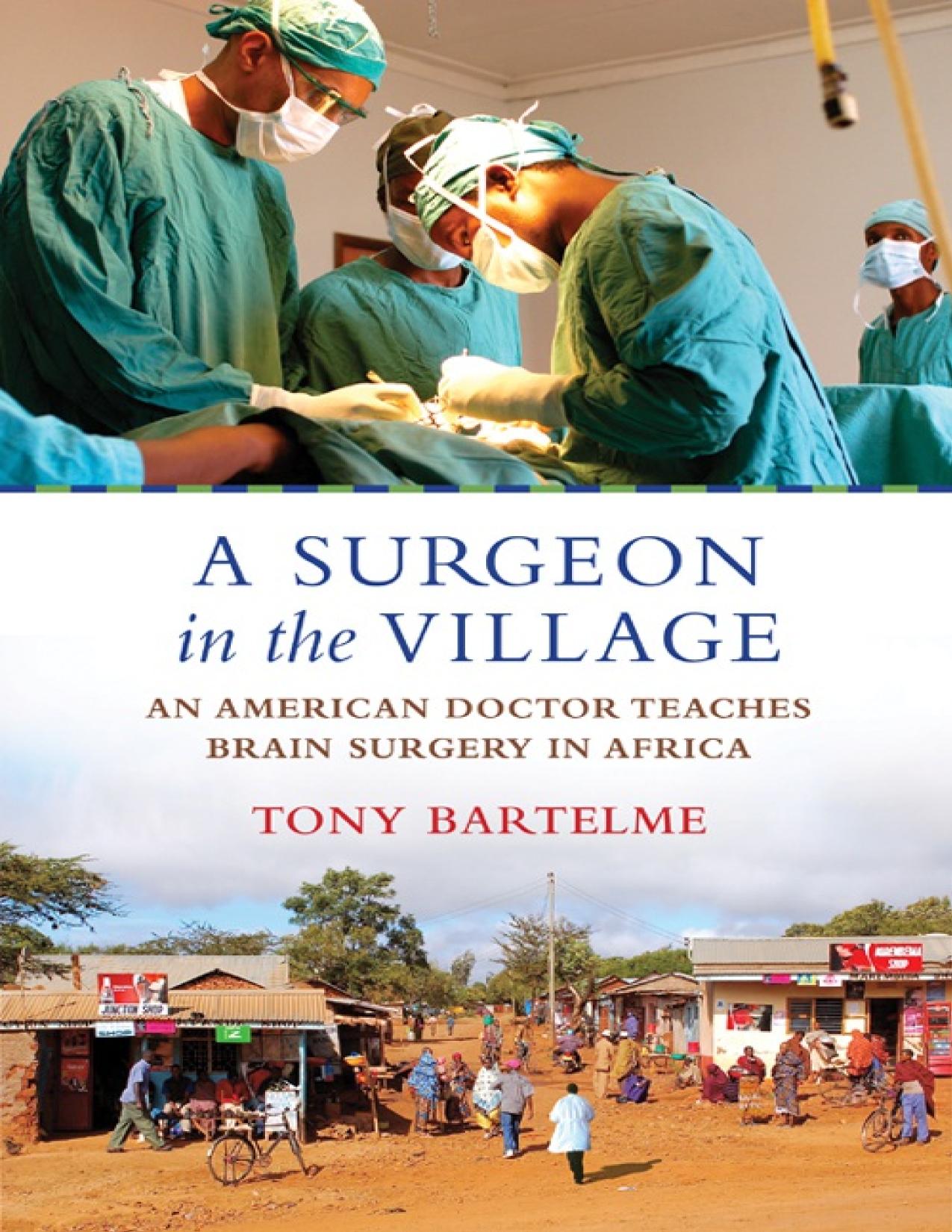
A Surgeon in the Village
An American Doctor Teaches Brain Surgery in Africa
یک دکتر آمریکایی جراحی مغز را در آفریقا درمان میکند.
کتاب های مرتبط
- اطلاعات
- نقد و بررسی
- دیدگاه کاربران
نقد و بررسی

January 30, 2017
At a time when so many nations lack proper medical care, Bartelme, the senior projects reporter for the Post and Courier in Charleston, S.C., tells the story of courageous Dr. Dilan Ellegala, a talented Harvard-trained neurosurgeon, who seeks to bring meaning to his life with compassionate outreach. Bartelme takes the reader on the humanistic journey of the Sri Lanka native in his arduous medical school training, his grinding rotations of performing delicate operations in a New York facility, and his challenging decision to take a position at an understaffed missionary hospital in Tanzania. Some of the segments in the biography are quite clinical in their graphic depictions of the history of brain medicine and the current procedures. The doctor explains the brain surgeon’s view: “You were touching a person’s past and dreams, everything a person is and would be.” Tanzania has only three neurosurgeons for 43 million people, so Ellegala begins an effective training program with young medical workers in a new group, Madaktari, that’s designed to prepare doctors to serve in the global health crisis. Noting the shortage of surgeons, Bartelme writes knowingly of the dedication of a valiant doctor determined to change how modern medicine interacts with the world.

February 1, 2017
The story of an American brain surgeon in Tanzania and the work he has done to develop surgeons in the East African country.In 2006, Dilan Ellegala, a Sri Lanka-born American citizen and gifted neurosurgeon, took a sabbatical at a missionary hospital in Haydom, Tanzania. His plan was to clear his head, practice a bit of medicine, and perhaps figure out what he wanted from his career and life. Immediately, he understood that he had entered a completely different world. Tanzania, a country of 43 million people, had only three neurosurgeons, and other specialties were similarly lacking. Ellegala knew that he could not fill the gap himself and that relying on visiting doctors was insufficient. So he decided to teach Emmanuel Mayegga, an assistant medical officer, how to conduct brain surgery. It was a risky gambit, but it seemed to work. Within a few years, Mayegga had gone to medical school and trained a protege, who in turn trained his own protege. Ellegala started a nonprofit based on the principle that Tanzanians should be primarily responsible for providing medical care to their countrymen. Post and Courier (Charleston, South Carolina) senior projects reporter Bartelme, a three-time Pulitzer Prize finalist--including for the series of articles that provide the foundation for this book--tells the story of Ellegala and his personal and professional triumphs and struggles. The author writes fluidly and clearly admires his subject even as he acknowledges Ellegala's flaws. On the whole--but not always--Bartelme avoids the hoariest cliches about the Western hero in darkest Africa, though he has a tendency to try to make each one of his short chapters more portentous than some of them warrant. Nonetheless, this is a fine book about a devoted doctor attempting to help Tanzanians help themselves. A highly inspirational story about sustainable global health measures.
COPYRIGHT(2017) Kirkus Reviews, ALL RIGHTS RESERVED.

March 1, 2017
The brain has more neurons than the Milky Way has stars. Impressive. As are the many stars who work at an African bush hospital and the magnitude of human warmth they emit. In 2006, a 37-year-old burnt-out neurosurgeon, Dilan Ellegala, traveled to Tanzania for a stint at a remote medical mission, Haydom Lutheran Hospital, a busy 400-bed facility supported chiefly by the Norwegian government. Despite a population of 43 million, Tanzania only had three neurosurgeons. As three-time Pulitzer Prize finalist Bartelme reports, Ellegala quickly realized that traditional short-term medical missions were a Band-Aid remedy. A better solution involved teaching local health workers and encouraging them to be independent. Not only did he train a non-MD assistant medical officer at the hospital to perform neurosurgery (who in turn trained another person, who then taught brain surgery to someone else), Ellegala also helped create a nonprofit global-health initiative centered on medical teaching. Problem solving, improvising, and expressing compassion permeate this unusual and fascinating chronicle. As does failure, but as Bartelme makes clear, failure can offer opportunities for learning, healing, and seeking redemption.(Reprinted with permission of Booklist, copyright 2017, American Library Association.)

























دیدگاه کاربران